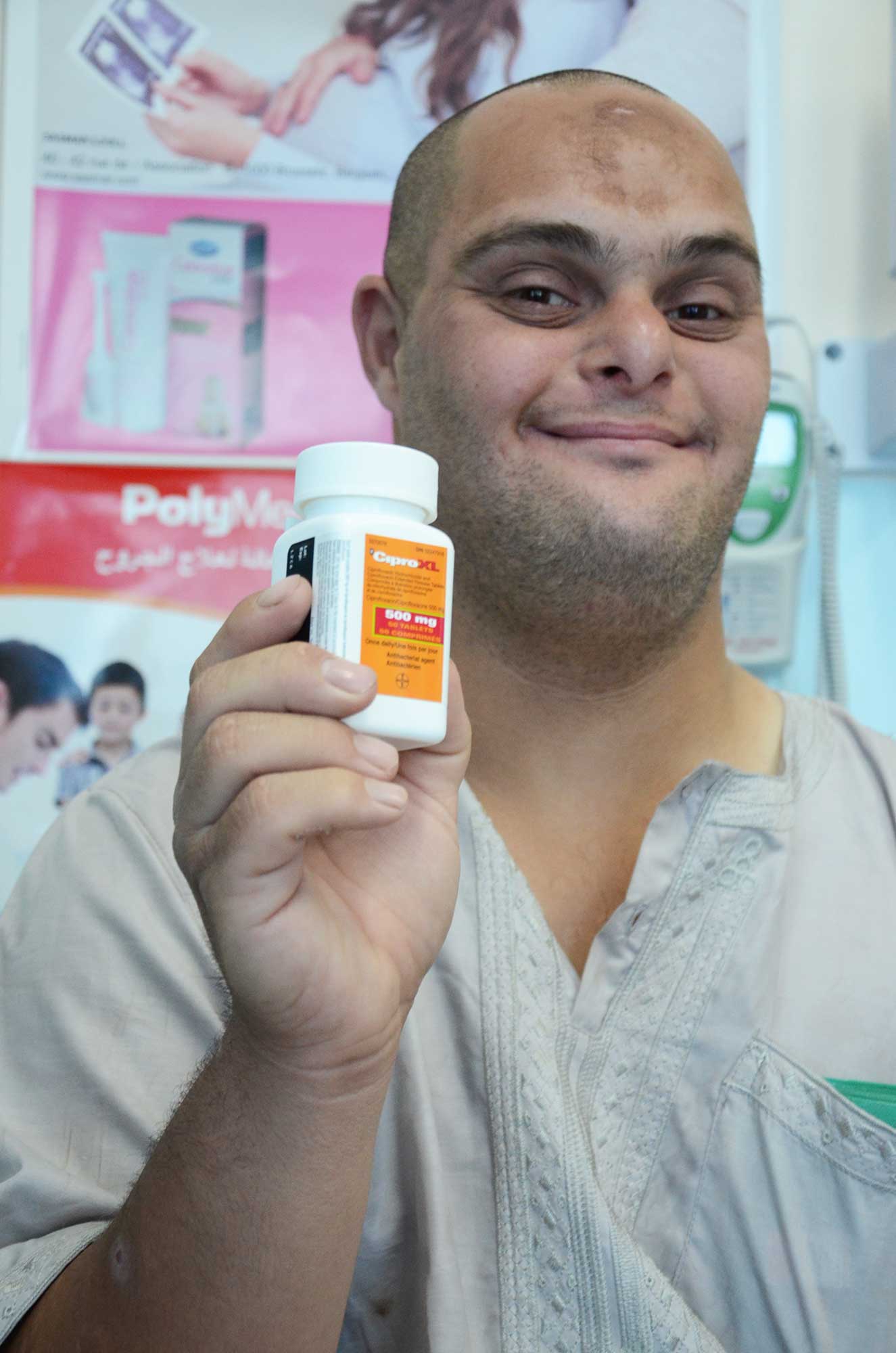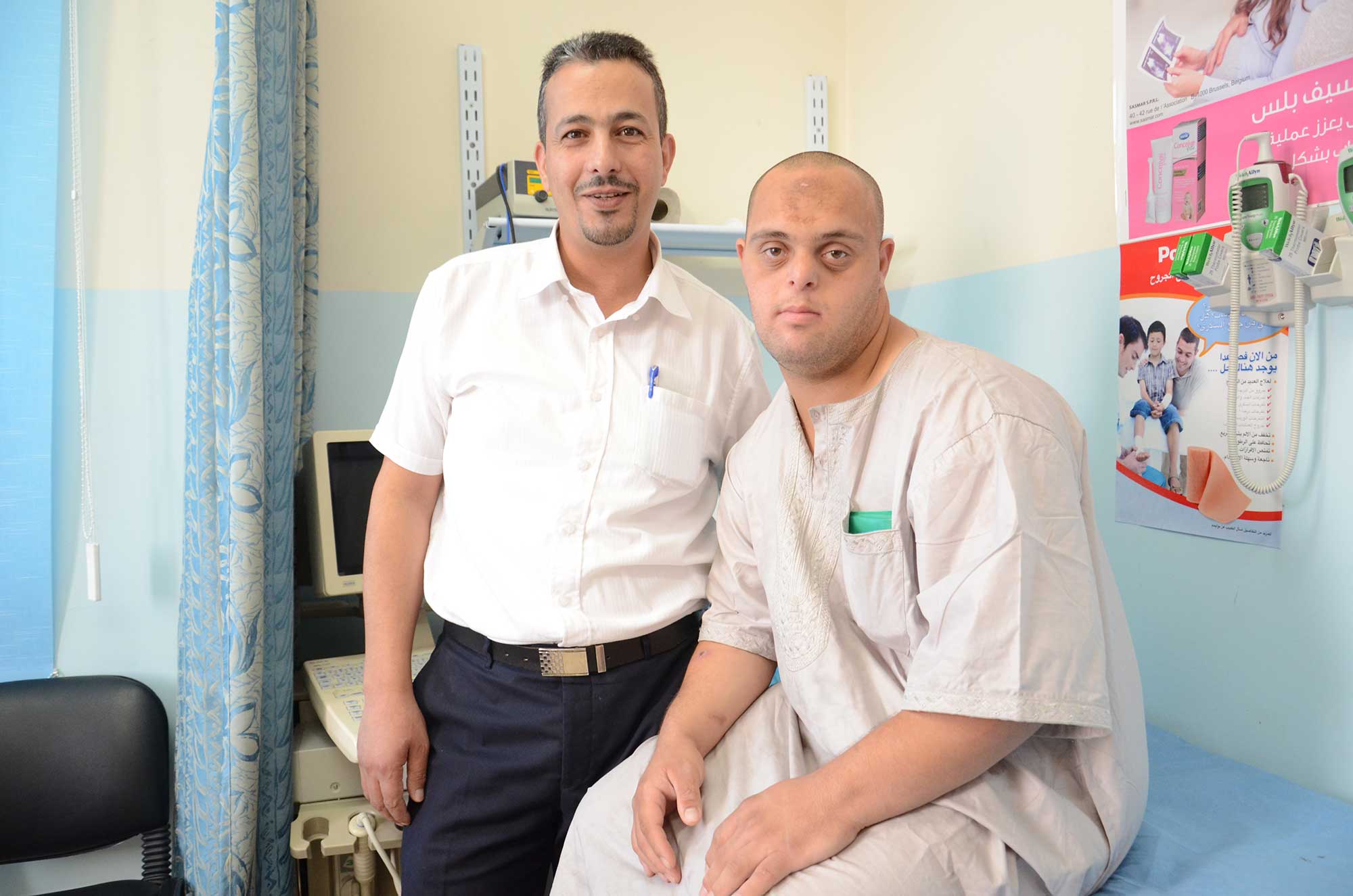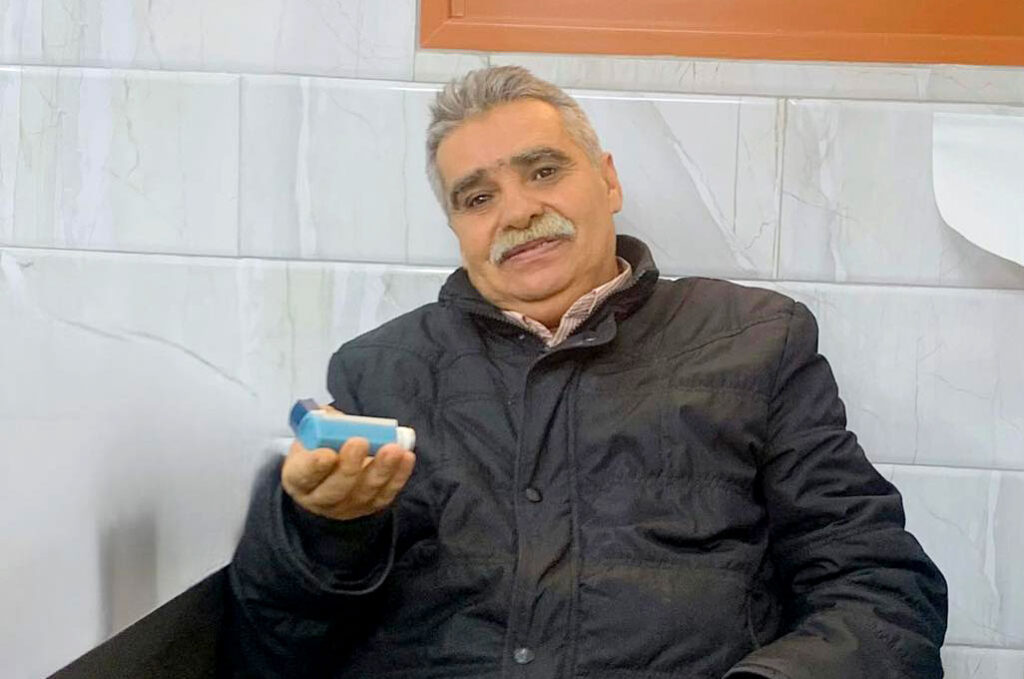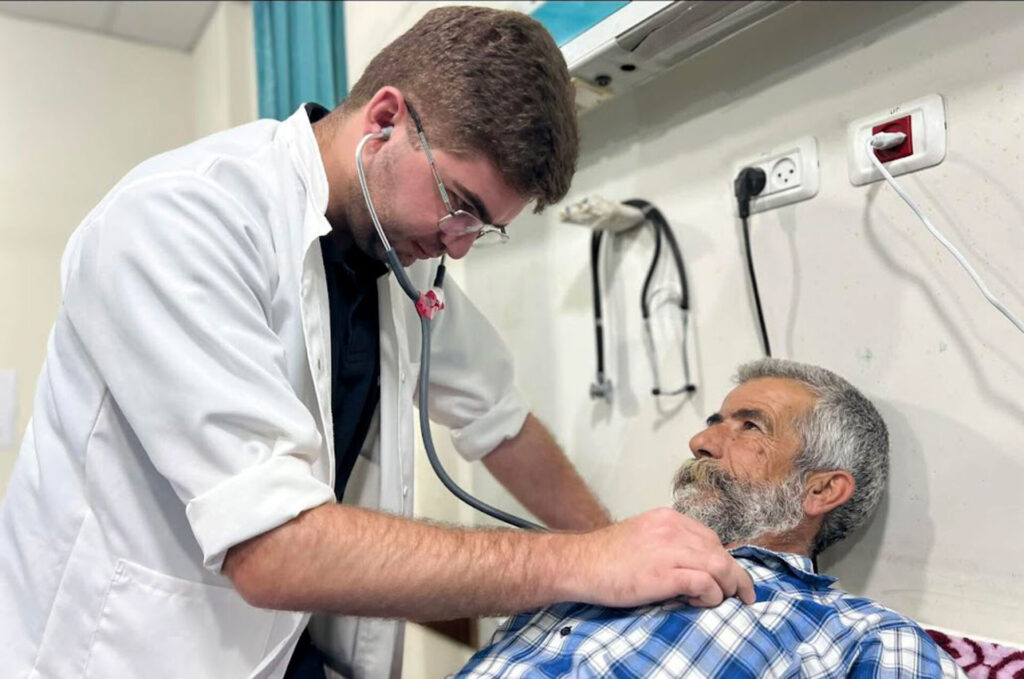Nov, 2015
Mahmoud Imreish is 26 years old. He lives near Hebron where he is a familiar face at the charitable medical center in the Old City of Hebron.
Mahmoud has Down Syndrome. For two years, he has been the patient of Dr. Wael Al-Rajabi’s and considers him a good friend now.
Mahmoud lives in extreme poverty with his brothers and sisters. After losing his parents, he turned to his siblings and charity organizations for help. Because of his intellectual disability, he is unable to work or maintain a steady income. Mahmoud managed to buy some basic medication for his condition with help from the people around him. Now, he is able to benefit from the center’s free treatment and medication services. Dr Rajabi says it has lifted a huge burden off his shoulders.
Medical Donation Eases Burden on Clinic, Patients


Doctor Rajabi explains that the center receives a lot of cases with congenital abnormalities, and its doors are always open to them, regardless of their financial backgrounds. So medical donations like those Anera can deliver are of great value to the center and its patients. Dr. Rajabi says they are crucial to the center’s sustainability. The majority of patients cannot afford to buy the medicines they need so the center depends on donor organizations to provide those vital medications for them.
One of those medicines was an antibiotic donated by Health Partners International of Canada (HPIC). It has helped patients like Mahmoud treat urinary tract infections. The doctors are encouraged about the effectiveness of the medicine because of its extended release feature, which means that Mahmoud has to take the medication only once a day. “A tablet a day from this excellent medication requires minimal follow-up from his family. It is something he can easily remember to take,” explained Dr. Rajabi.
He says the center treats 40 to 50 patients a week with urinary tract infections. The number soared this summer because of an unusual heat wave, causing cases of dehydration that the doctor says can lead to urinary infections. The change in weather can affect people with Down Syndrome even more because of abnormalities in their immune systems.
As Dr. Rajabi watches Mahmoud walk down the hall to collect the medicine and greet everyone on his way, he says he is heartened to know that donations like the HPIC medicines can help his patients and ease their financial burdens. “Mahmoud has amazing kindness. I wish we all had his big heart.”




